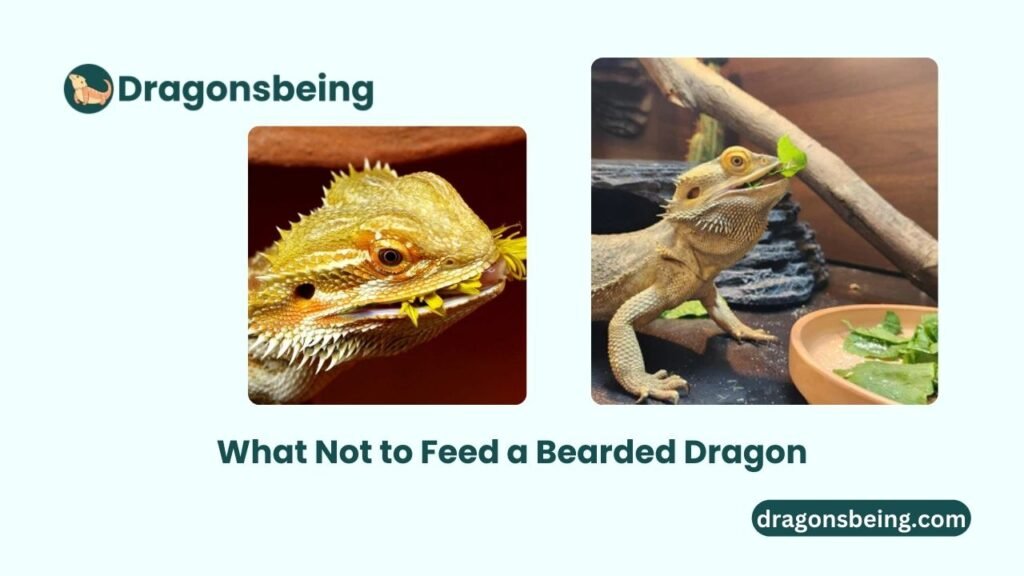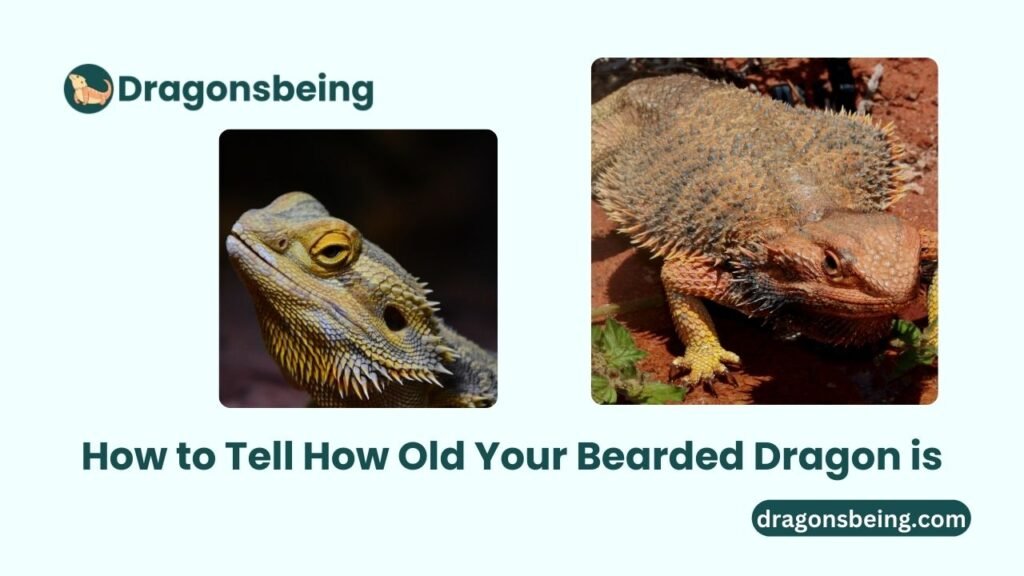Avoid feeding bearded dragons foods high in fat, such as avocados and insects like fireflies. Never give them processed foods or dairy products.
Bearded dragons are popular pets known for their friendly nature and unique dietary needs. Proper nutrition is essential for their health and longevity. A balanced diet typically includes a mix of insects and vegetables. However, not all foods are safe for these reptiles.
Understanding what to avoid is crucial for preventing health issues. Certain foods can lead to obesity, digestive problems, or even toxicity. By learning what not to feed your bearded dragon, you can ensure a happy and healthy life for your pet. This guide will help you identify harmful foods and promote better dietary choices.
Introduction To Bearded Dragon Diets
Bearded dragons are popular pets. Their diet plays a huge role in their health. Proper nutrition helps them thrive and live longer. Knowing what to feed them is essential. Equally important is knowing what to avoid. This guide will help you understand their dietary needs.
The Importance Of Proper Nutrition
Proper nutrition is vital for bearded dragons. It affects their growth, energy, and overall well-being. Here are key points to consider:
- Balanced Diet: A mix of insects and vegetables is best.
- Calcium and Vitamins: Supplements are necessary to prevent diseases.
- Hydration: Fresh water should always be available.
Feeding the right foods helps prevent health issues. Obesity and metabolic bone disease are common problems. Educate yourself about their dietary needs.
Common Myths About Bearded Dragon Foods
Many myths surround bearded dragon diets. Here are some of the most common:
| Myth | Fact |
|---|---|
| All insects are safe. | Some insects can be toxic. Stick to safe options. |
| Bearded dragons are herbivores. | They need both insects and plants for a balanced diet. |
| Fruit is a staple food. | Fruit should be a rare treat, not a staple. |
Understanding these myths helps you make better choices. Always research before feeding your pet. Safe feeding leads to a healthier bearded dragon.
Insect Foods To Avoid
Feeding your bearded dragon the right insects is crucial. Some insects can cause serious harm. Knowing what to avoid helps keep your pet healthy.
Fireflies: A Deadly Snack
Fireflies are not suitable for bearded dragons. These insects contain toxins. Eating fireflies can lead to severe illness.
- Toxins can cause paralysis.
- Symptoms include vomiting and lethargy.
- Death can occur from consuming fireflies.
Always ensure your pet’s diet is free from fireflies. Choose safer insect options instead.
Wild-caught Insects: Hidden Dangers
Wild-caught insects might seem natural. They often carry hidden risks.
| Insect Type | Potential Risks |
|---|---|
| Grasshoppers | May contain pesticides. |
| Flies | Can transmit parasites. |
| Ants | Some species are toxic. |
Always source insects from reliable suppliers. Avoid insects caught in the wild. This prevents potential health issues.
Plant Foods That Harm
Bearded dragons require a balanced diet. Some plant foods can be harmful. Avoid these toxic plants to keep your pet healthy.
Avocado: A Toxic Treat
Avocado is delicious for humans but dangerous for bearded dragons. It contains a substance called persin. This compound can cause serious health issues.
- Symptoms of avocado poisoning include:
- Vomiting
- Diarrhea
- Difficulty breathing
Even small amounts can be harmful. Always keep avocado away from your dragon’s diet.
Rhubarb Leaves: Unsuspected Risk
Rhubarb leaves are another dangerous food. They contain high levels of oxalic acid. This acid can lead to kidney failure.
- Signs of rhubarb poisoning include:
- Loss of appetite
- Weakness
- Severe drooling
Do not feed rhubarb leaves to bearded dragons. Always choose safe, nutritious plants instead.
Fruits To Exclude From Their Diet
Bearded dragons enjoy a variety of foods. However, some fruits can harm their health. Knowing which fruits to avoid is essential for their well-being. This section highlights specific fruits you should exclude from their diet.
Citrus Fruits: Acidic Issues
Citrus fruits like oranges, lemons, and limes are popular. They are tasty for humans but not for bearded dragons. Here’s why:
- High acidity: Citrus fruits are very acidic.
- Digestive problems: The acidity can upset their stomach.
- Calcium absorption: They hinder calcium absorption, causing health issues.
Always avoid giving your bearded dragon citrus fruits. Stick to safer fruit options.
Tomatoes: Occasional Or Rare
Tomatoes are another fruit to be cautious with. They can be offered, but sparingly. Here’s what to keep in mind:
- High acidity: Like citrus, tomatoes can be acidic.
- Solanine content: Unripe tomatoes contain solanine. This can be toxic.
- Moderation: If given, offer them rarely and in small amounts.
Choose safer fruits like bananas or berries instead. Keep your bearded dragon healthy and happy.
Dairy And Meat Products To Avoid
Feeding your bearded dragon the right foods is crucial. Certain dairy and meat products can harm their health. Here, we discuss the specific items to avoid.
Cheese And Milk: Why Reptiles Can’t Digest Dairy
Many pets enjoy cheese and milk. Bearded dragons, however, cannot digest dairy. Their digestive systems lack the enzymes needed for lactose breakdown.
- Cheese: High in fat. Can lead to obesity.
- Milk: Contains lactose. Causes digestive issues.
- Yogurt: Similar to cheese. Not suitable for reptiles.
Feeding these items can cause health problems. Symptoms may include:
- Diarrhea
- Stomach cramps
- Dehydration
Processed Meats: High In Fat And Salt
Processed meats are common human foods. They are not good for bearded dragons. These meats contain high levels of fat and salt.
| Processed Meat | Health Risks |
|---|---|
| Hot Dogs | High in sodium and preservatives. |
| Bacon | Excess fat can cause obesity. |
| Ham | High salt can lead to dehydration. |
Avoid giving these meats to your bearded dragon. Stick to natural insects and vegetables for a balanced diet.
The Perils Of Processed Foods
Bearded dragons need a healthy diet to thrive. Processed foods can harm their health. They lack essential nutrients and can lead to serious issues. Avoid giving your bearded dragon anything that comes from a package. Focus on fresh, whole foods for their well-being.
Chocolates And Sweets: A Dangerous Indulgence
Chocolates and sweets are toxic for bearded dragons. These foods contain high sugar levels and harmful substances. Even small amounts can cause severe health problems.
- Chocolate: Contains theobromine, which is deadly for reptiles.
- Sweets: High in sugar, leading to obesity and diabetes.
- Signs of Toxicity: Vomiting, lethargy, and seizures.
Always keep chocolates and sweets away from your pet. Stick to safe, natural treats instead.
Bread And Pasta: Unfit For Reptilian Consumption
Bread and pasta are not suitable for bearded dragons. These foods can cause digestive issues. Bearded dragons are not designed to digest grains.
| Food Type | Why It’s Harmful |
|---|---|
| Bread | Contains gluten, which can upset their stomach. |
| Pasta | High in carbohydrates, leading to weight gain. |
Choose fresh vegetables, fruits, and insects instead. These provide the nutrients your bearded dragon needs.
Beverages That Can Harm
Bearded dragons need a careful diet. Not all drinks are safe. Some beverages can cause serious health issues. Understanding what to avoid is crucial for your pet’s well-being.
Alcohol: A Toxic Substance
Alcohol is extremely harmful to bearded dragons. Even a small amount can be deadly. Here are some key points:
- Alcohol affects their nervous system.
- It can cause serious organ damage.
- Symptoms include lethargy and lack of coordination.
Always keep alcohol away from your bearded dragon. They do not metabolize it like humans do. A few drops can lead to severe consequences.
Caffeinated Drinks: Health Hazards
Caffeine poses serious risks to bearded dragons. Avoid giving them coffee, tea, or soda. Here’s why caffeine is dangerous:
| Health Risks | Description |
|---|---|
| Increased Heart Rate | Caffeine can cause rapid heartbeats. |
| Dehydration | Caffeine may lead to severe dehydration. |
| Digestive Issues | Caffeine can upset their stomach and cause diarrhea. |
Stick to water and safe vegetables. Always prioritize your bearded dragon’s health.
Unsafe Supplements And Decor
Bearded dragons need the right diet and environment. Some supplements and decor can harm them. Understanding what to avoid is crucial for their health.
Calcium Sand: Impaction Risk
Calcium sand might seem like a good choice. It’s marketed for reptiles, but it poses serious risks. Here’s why:
- Impaction: Bearded dragons can ingest sand while eating.
- Blockage: Sand can block their intestines.
- Health Issues: A blockage can lead to severe health problems.
Instead of calcium sand, use safer substrates. Consider options like:
| Safe Substrate Options |
|---|
| Reptile carpet |
| Paper towels |
| Tile |
Vitamin Supplements: The Dosage Dilemma
Vitamin supplements are essential for bearded dragons. Over-supplementing can cause problems. Here are key points to remember:
- Read Labels: Follow the recommended dosages.
- Monitor Health: Watch for signs of overdose.
- Consult a Vet: Seek advice on supplementation.
Too much vitamin D3 can lead to:
- Kidney damage
- Weak bones
Balance is key. Provide a varied diet rich in nutrients. This helps avoid reliance on supplements.
Feeding Frequency And Quantity
Feeding a bearded dragon the right amount is crucial. Too much food can lead to health issues. Establishing a proper feeding schedule helps keep your pet healthy.
Overfeeding: Recognizing The Signs
Overfeeding can cause serious health problems. Watch for these signs:
- Weight gain: An increase in body weight.
- Fatigue: Lack of energy or lethargy.
- Digestive issues: Constipation or diarrhea.
- Unusual behavior: Hiding or avoiding activity.
Maintain a feeding schedule. Younger dragons require more frequent meals. Adults need fewer meals but larger portions.
| Age | Feeding Frequency | Portion Size |
|---|---|---|
| Hatchlings (0-3 months) | 3-4 times daily | Pinhead crickets, small greens |
| Juveniles (3-6 months) | 2-3 times daily | Small crickets, chopped vegetables |
| Adults (6 months+) | 1-2 times daily | Large crickets, leafy greens |
Treats: Moderation Is Key
Treats can be fun for your bearded dragon. Use them sparingly. Too many treats can upset their diet.
- Fruits: Offer small pieces once a week.
- Mealworms: Limit to a few times a month.
- Store-bought treats: Check ingredients for safety.
Monitor your pet’s weight and health. Adjust treats accordingly. Remember, moderation keeps your bearded dragon happy and healthy.
Safe Alternatives For A Balanced Diet
Feeding your bearded dragon the right foods is crucial. Some foods can harm their health. Choosing safe alternatives helps maintain a balanced diet. Here are some options to consider.
Nutritionally Balanced Commercial Diets
Commercial diets provide all necessary nutrients. They are specially formulated for bearded dragons. Look for high-quality brands that list ingredients clearly.
- Choose diets high in protein.
- Ensure they contain fiber and vitamins.
- Avoid those with excessive fillers.
Popular brands include:
| Brand | Key Features |
|---|---|
| Repashy | High protein, natural ingredients |
| Zoo Med | Fortified with vitamins |
| Exo Terra | Variety of textures and flavors |
Healthy Treats: What’s Safe To Feed
Treats can enhance your bearded dragon’s diet. Choose treats that are safe and nutritious. Here are some healthy options:
- Crickets
- Mealworms
- Waxworms
- Fresh greens like collard and mustard greens
- Fruits such as strawberries and blueberries
Limit treats to 10% of their diet. Always chop fruits and vegetables into small pieces. This helps prevent choking and aids digestion.
Frequently Asked Questions
What Foods Are Toxic To Bearded Dragons?
Foods like avocado, chocolate, and onions can be toxic to bearded dragons. Always avoid these items.
Can Bearded Dragons Eat Fruit?
Fruits should be offered sparingly. High sugar content can lead to obesity and health issues.
Is Lettuce Safe For Bearded Dragons?
Lettuce is mostly water and lacks nutrients. It’s best to avoid it in their diet.
Can Bearded Dragons Eat Insects?
Yes, but avoid feeding them wild-caught insects. They may contain harmful pesticides or parasites.
What Vegetables Should Be Avoided?
Avoid starchy vegetables like potatoes and corn. These can disrupt digestive health in bearded dragons.
How Often Should I Feed My Bearded Dragon?
Feed adult bearded dragons every other day. Younger dragons need daily feeding for proper growth.
Conclusion
Feeding your bearded dragon the right foods is crucial for their health. Avoid harmful items like citrus fruits, chocolate, and insects caught in the wild. Always prioritize a balanced diet of vegetables and appropriate protein sources. This knowledge will help you keep your pet happy and thriving for years to come.

Hi, I’m Dr. Michelle Mayers, a veterinary professional with a deep passion for animal health and well-being. Over the years, I’ve dedicated my life to caring for animals and helping pet owners better understand their furry, feathered, or scaly companions. On my blog, Dragonsbeing, I share insights, tips, and stories that aim to educate, inspire, and connect with fellow animal lovers. Join me at Dragonsbeing as we explore the fascinating world of veterinary care and celebrate the special bond between humans and animals!


